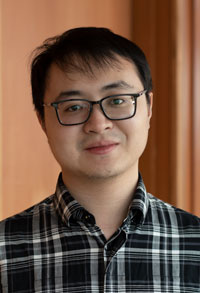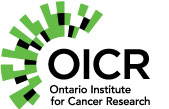
Finding new clues to prevent and treat cancer in “junk DNA”
Only a few years ago, some might have questioned the value of Shimin Shuai’s research into cancer-causing mutations. That is because Shimin is studying the 99 per cent of the genome that is non-protein coding, which until recently was referred to as ‘junk DNA’. Now, through the work of Shimin and others, this junk DNA has since been shown to have important functions in the development of cancer and clues to how to better prevent and treat it.
Shimin is studying non-coding DNA as part of the Pan-Cancer Analysis of Whole Genomes project, an OICR-led project where researchers are working to identify cancer-driving mutations in this region of the genome. As part of this work Shimin first developed a software package that can be used to identify cancer-driving gene mutations. Then, in another project, Shimin and his collaborators at the Hospital for Sick Children and in Spain discovered the first cancer driver ever within small nuclear RNA, inside regions of the genome usually ignored or discarded during standard analysis.
“Through our analysis we found a highly-recurrent mutation in small nuclear RNA that can lead to aberrant gene splicing in hundreds to thousands of genes in leukemia, lymphoma, liver cancer and brain cancer and therefore may contribute to the growth of these cancers,” says Shimin.
To Shimin, these accomplishments are a realization of his desire to combine his education and interests in biology and informatics. Shimin credits the opportunities made available to him through OICR as a big part of how he was able to successfully conduct this research.
“There are definitely many advantages to doing research at OICR. In my field, access to big data is fundamental. OICR’s role in hosting data for many big international collaborations afforded me access to these important resources,” says Shimin. “In addition, OICR’s connections to Ontario collaborators, its compute clusters and the Cancer Genome Collaboratory made this type of research way easier to perform.”
Beyond the many technical resources at Shimin’s disposal, there are other aspects that have made OICR a great launching pad for his early career. “My training is in fundamental biological science, however being at OICR has made me think about the clinical side of things more,” explains Shimin. “This has made me focus more intently on the translational aspect of research and how the work we are doing day-to-day can have a positive impact for patients.”
Shimin, who came to Ontario from his native China in 2014, hopes to complete a postdoctoral fellowship in cancer research and eventually establish his own lab in the province.
